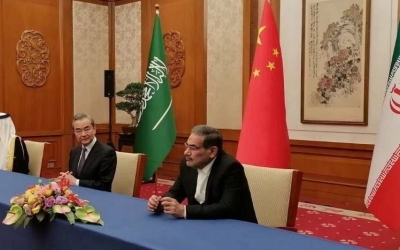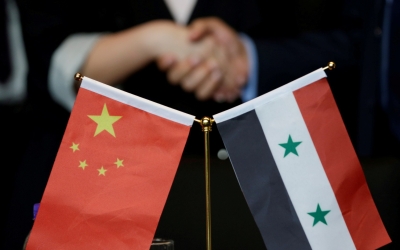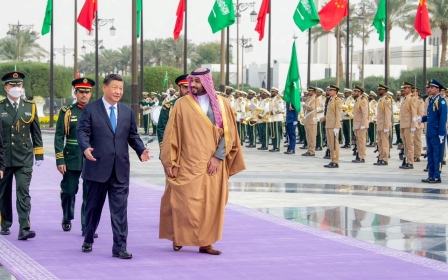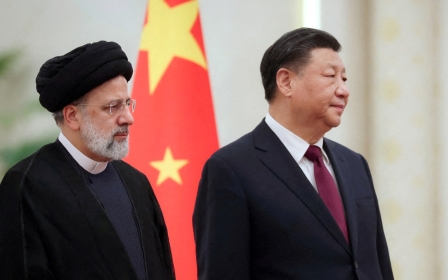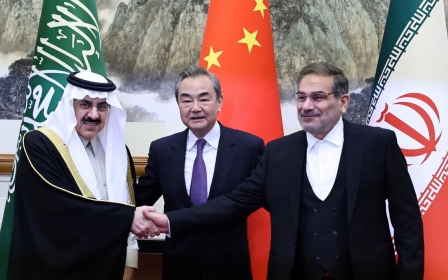What China gains from Saudi accession to the Shanghai Cooperation Organisation
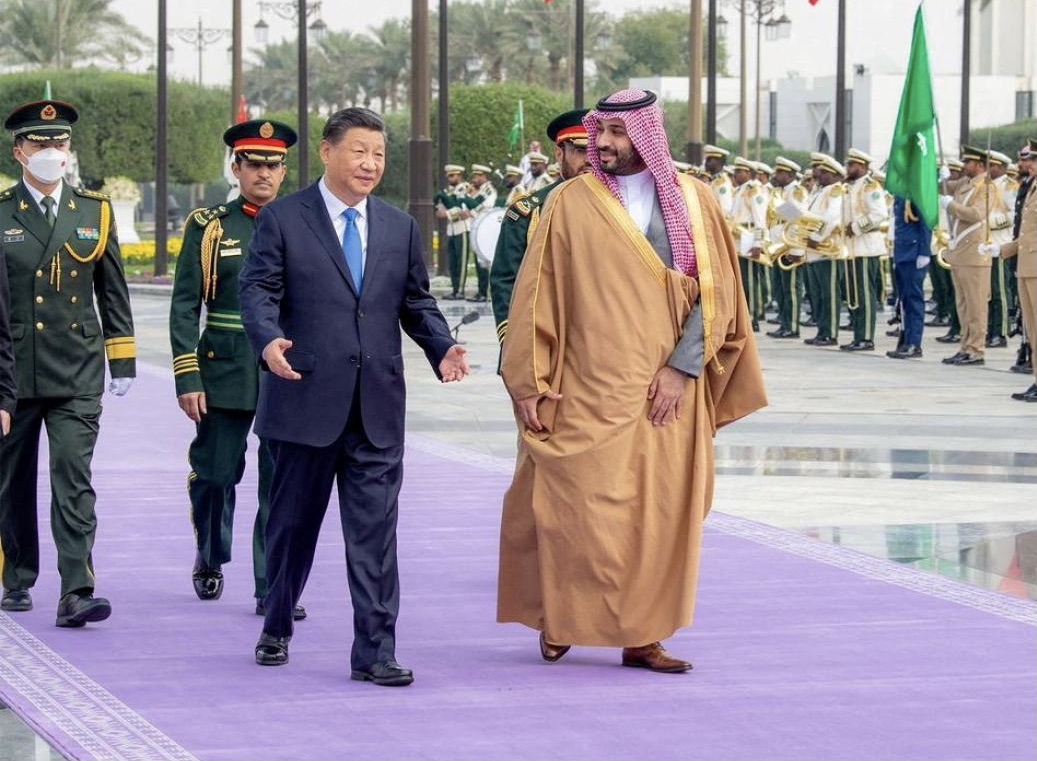
On 29 March, the Saudi Arabian cabinet, presided over by King Salman bin Abdulaziz, authorised the nation's bid to become a dialogue partner in the Shanghai Cooperation Organisation (SCO), a Eurasian bloc dedicated to fostering multilateral cooperation in the realms of security, economy and politics.
Comprised of eight members - China, Russia, India, Pakistan, Kazakhstan, Kyrgyzstan, Tajikistan, Uzbekistan, and Iran as an already acceding member - the organisation also confers observer status to Afghanistan, Mongolia and Belarus.
Further, it maintains dialogue partnerships with countries such as Armenia, Azerbaijan, Cambodia, Nepal, Turkey, Egypt, Sri Lanka and Saudi Arabia.
As the initial phase in joining the SCO, dialogue partnership represents the lowest tier of cooperation within the organisation. Consequently, some observers argue against overstating the implications of Saudi Arabia becoming such a partner.
However, this move assumes greater significance when set against the backdrop of recent events and developments in the Middle East.
Saudi Arabia's decision to join the SCO after the agreement to restore relations with Tehran in Beijing underscores China's expanding role within the Middle East geopolitical landscape.
Saudi Arabia's ascension to the SCO, along with potential fields of cooperation between Iran and Saudi Arabia including on transportation, communication and geopolitical issues, may have already been discussed in Beijing during discussions on normalising Tehran-Riyadh ties. All members seeking admission to the organisation must not be hostile to existing members and maintain active relations with them.
Collective development
Following the announcement of the Saudi cabinet's decision, the Chinese Foreign Ministry's spokesperson expressed support and declared Beijing's readiness to assist in upholding regional peace and stability, as well as promoting collective development through strengthening cooperation with Saudi Arabia under the SCO framework.
Although the SCO affords veto rights to all its member states on numerous decision-making matters, according to some observers, the influence China holds in the organisation makes the country a driving force on decisions.
Additionally, China has endeavoured to align the SCO's economic mechanisms with the Belt and Road Initiative's completion.
In March 2015, the SCO General Secretary Dmitry Mezentsev proclaimed that the organisation would integrate its developmental strategies with China's ambitious Silk Road strategy, extending invitations to all members for participation in the initiative. Subsequently, in a matter of four months, President Xi Jinping and Russian President Vladimir Putin concurred on taking measures to merge the Silk Road Economic Belt with the Eurasian Economic Union (EEU), employing the SCO as the coordinating structure.
Further, some analysts suggest that the allocation of investments and loans within the SCO prioritises countries involved in the Belt and Road Initiative.
Consequently, Saudi Arabia's membership can be viewed as a substantial boon for China as geographical expansion of the SCO facilitates collaboration with a country involved in the Belt and Road Initiative.
Furthermore, in line with the organisation's commitments, it enhances energy accessibility for its members, including China. Notably, in December 2022, China and Saudi Arabia forged bilateral agreements and memoranda of understanding designed to align Saudi Arabia's 2030 development vision with China's Belt and Road Initiative.
Additionally, particularly when considering that Iran and Saudi Arabia's concurrent membership will facilitate the establishment of an intricate network of economic, political and cultural strategies throughout the region as both Iran and Saudi Arabia possess remarkable potential for geopolitical cooperation in transportation, communication, and fostering ties between Central Asia and the Middle East.
Though the SCO portrays itself as an instrument for economic convergence, its expansion brings broader political and security implications. Based on internal regulations, the SCO's permanent membership process is both time-consuming and incremental. The protracted nature of the membership process serves a dual purpose: it ensures the new member's adherence to internal organisational agreements, while simultaneously discouraging a hasty and low-cost exit.
Nonetheless, the membership process over the past decade has displayed a combination of Russia and China's geopolitical and geoeconomic motivations that have facilitated India, Pakistan and Iran's inclusion in the organisation.
This may also be the case for Saudi Arabia.
Geopolitical objectives
As China has demonstrated an interest in developing new regional architecture in the Middle East, Saudi Arabia's membership of the SCO certainly advances three essential geopolitical objectives.
First and foremost, it serves to bolster the axis of Asian convergence within the organisation, extending the SCO as far as the Middle East and thus complementing its existing presence in Central Asia, South Asia and the Eurasian region.
First and foremost, it serves to bolster the axis of Asian convergence within the organisation, extending the SCO as far as the Middle East
Secondly, this development bequeaths the SCO the responsibility for executing the regional security mission. Given that Saudi Arabia is a major actor in the geopolitical and geoeconomic competition in the region, this enlargement may bestow a distinct advantage on the kingdom and pave the way for practical initiatives.
Lastly, the addition of Saudi Arabia to the organisation presents a propitious moment for the SCO to conceive and orchestrate future scenarios for forming new regional and international blocs.
In essence, amid new developments in the South China Sea, the war in Ukraine and its global repercussions, as well as the perpetually evolving global political landscape, the Saudi accession could provide further leverages for the SCO to adapt and respond proportionately to potential challenges and opportunities.
Consequently, the Saudi accession would empower the organisation to strategically foster new collaborations and alliances with new members while simultaneously bolstering its cohesion and efficacy as a formidable regional and international force.
New financial system
By creating economic appeal within the SCO, China has sought to broaden the organisation's geographical sphere of influence. In accordance with the key areas of economic cooperation, new mechanisms and arrangements are being developed among the member countries, encompassing domains such as energy, transportation and financial systems.
Saudi Arabia's entry into the SCO may contribute to the invigoration and operational strengthening of these mechanisms.
Presently, one of the most pressing objectives is the establishment of a financial system independent of western and dollarised arrangements.
Although collaboration between the SCO member states in energy matters is not contingent upon their inclusion in the organisation, Saudi Arabia's membership - given Russia and Iran's existing memberships - could strengthen the position of the energy club within the SCO.
By aligning the considerations of major global energy producers with the energy market, the energy club could assist in facilitating the organisation's development. Initially proposed by Russia in 2006, the establishment of the energy club within the SCO took until 2013 to come to fruition.
The primary objectives of creating such a club within the organisation are to satisfy the energy needs of its members, develop energy distribution infrastructure across the SCO's member countries, and ensure their energy security through the provision of alternative fuels, including nuclear energy.
The energy club may also promote the organisation's collaboration with other energy producers.
The views expressed in this article belong to the author and do not necessarily reflect the editorial policy of Middle East Eye.
Middle East Eye propose une couverture et une analyse indépendantes et incomparables du Moyen-Orient, de l’Afrique du Nord et d’autres régions du monde. Pour en savoir plus sur la reprise de ce contenu et les frais qui s’appliquent, veuillez remplir ce formulaire [en anglais]. Pour en savoir plus sur MEE, cliquez ici [en anglais].



